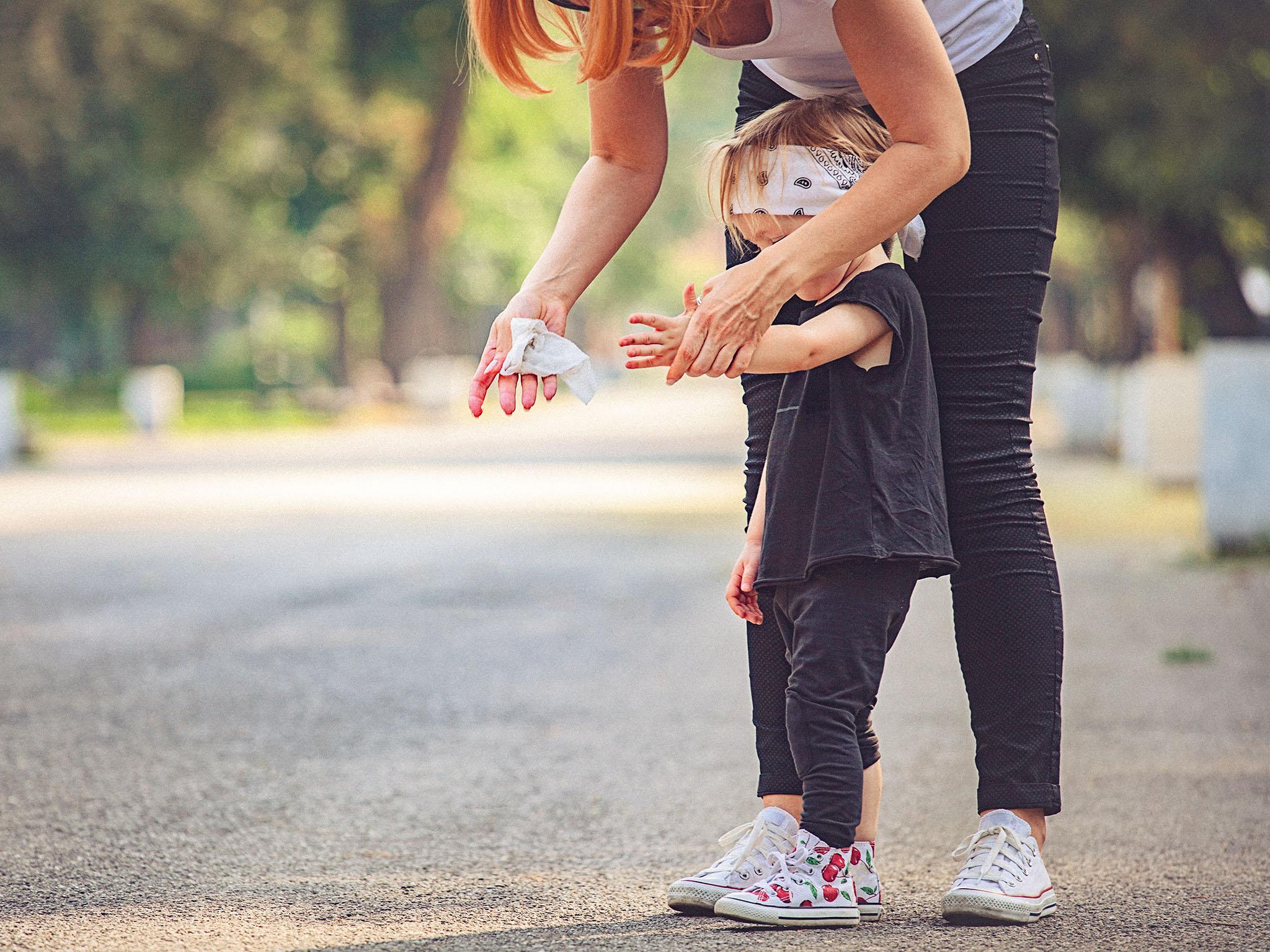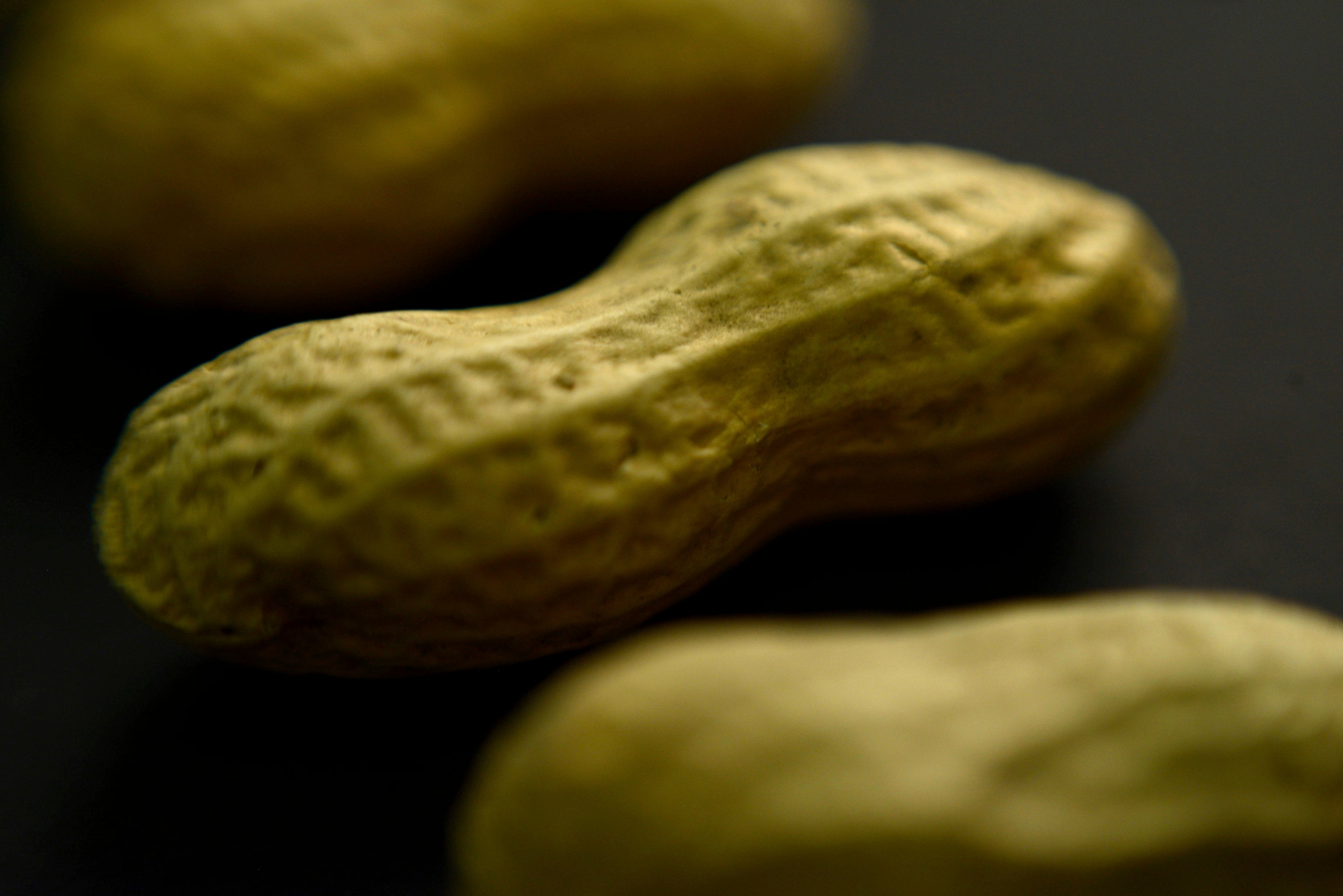Scientists celebrate ‘first step’ in making food allergies history
To date, 139 people aged from two to 23 with allergies to peanuts or cow’s milk have started treatment

Your support helps us to tell the story
From reproductive rights to climate change to Big Tech, The Independent is on the ground when the story is developing. Whether it's investigating the financials of Elon Musk's pro-Trump PAC or producing our latest documentary, 'The A Word', which shines a light on the American women fighting for reproductive rights, we know how important it is to parse out the facts from the messaging.
At such a critical moment in US history, we need reporters on the ground. Your donation allows us to keep sending journalists to speak to both sides of the story.
The Independent is trusted by Americans across the entire political spectrum. And unlike many other quality news outlets, we choose not to lock Americans out of our reporting and analysis with paywalls. We believe quality journalism should be available to everyone, paid for by those who can afford it.
Your support makes all the difference.Children with peanut and milk allergies have shown dramatic improvements on a new trial.
Five NHS hospitals have so far joined a £2.5 million clinical trial, thanks to funding from the Natasha Allergy Research Foundation.
Natasha Ednan-Laperouse died in 2016 after suffering a severe allergic reaction to sesame baked into a Pret baguette.
Her parents, Nadim and Tanya Ednan-Laperouse, campaigned for a change in food laws and set up the foundation with the hope of curing allergies through research.
Now the new clinical oral immunotherapy (OIT) trial is using everyday foods to build up an allergy patient’s tolerance over time.
Foods are given under medical supervision and the trial is also training NHS staff to offer OIT treatment.

Sibel Sonmez-Ajtai, paediatric allergy consultant and principal investigator at Sheffield Children’s NHS Foundation Trust, said: “This study is enabling us to do something we would never have dreamed of doing before – giving patients the foods we know they are allergic to.
“This treatment is not a cure for a food allergy, but what it achieves is life-transforming.
“To have a patient who has had anaphylaxis to 4mls of milk to then tolerate 90mls within six to eight months is nothing less than a miracle.”
Thomas Farmer, 11, who was diagnosed with a severe peanut allergy when he was one, can now eat six peanuts a day after joining the trial in Southampton.
His mother Lauren said: “Having food allergies can be really difficult and isolating … (but) our journey on the Natasha study has been amazing so far.
“At first, it was very scary for both Thomas and us when he did the food challenge, as we weren’t sure what to expect.
“Knowing that Thomas can now tolerate six peanuts a day has taken away so much anxiety around food.
“It will also hopefully mean that he will be able to eat a wider variety of food as we won’t be so concerned about accidental exposure.
“For Thomas to be able to achieve all this with no medicine, just off-the-shelf foods, is amazing.”
Since joining the trial in Newcastle, five-year-old Grace Fisher, who has a milk allergy, is now drinking 120ml milk a day. She will soon be able to eat pizza with her friends.
Her mother Emma said: “Grace is over six months into this journey and is doing amazing.
“She is currently on 120ml of milk and loves her daily hot chocolates.”
To date, 139 people aged from two to 23 with allergies to peanuts or cow’s milk have started treatment.
The trial is being run at University Hospital Southampton NHS Foundation Trust, Imperial College Healthcare NHS Trust, University Hospitals of Leicester NHS Trust, Newcastle Hospitals NHS Foundation Trust and Sheffield Children’s NHS Foundation Trust.
It will shortly start in Scotland, with plans for Bristol and Leeds to also join.
If successful, the three-year trial could provide more evidence for everyday foods treatment to be made available on the NHS.
At the moment, one treatment paid for by the NHS is Palforzia – peanut powder capsules which build tolerance to peanuts.

Mrs Ednan-Laperouse said: “We are so happy that some children with peanut and milk allergies are already seeing the benefits of using everyday foods under medical supervision to treat their allergic disease.
“If Natasha were alive today, this is exactly the type of research she would have loved to be part of.
“This is a major first step in our mission to make food allergies history. We look forward to seeing the final results.”
Mr Ednan-Laperouse said: “We can’t rely on big pharma and its giant profits to be a game-changer for people living with allergies.
“That is why we are harnessing the support of the food industry, who have helped fund this trial, to prove that OIT can work with everyday foods, making it more feasible to be available on the NHS.”
Professor Arshad, head of the asthma, allergy and clinical immunology service at University Hospital of Southampton, said: “The Natasha trial aims to do better for people living with food allergies.
“Our ultimate aim is a life without the risk of allergic reactions – reactions which for some can be severe and life-threatening.”
The Natasha Allergy Research Foundation is funding the trial through donations made to the charity from firms including Pret, Lidl, Leon, Uber Eats, Greggs, Tesco, Just Eat, Co-op, Morrisons, KFC, Sainsbury’s, Costa, Burger King, Domino’s, Kellogg’s, M&S, Muller and Waitrose.
Subscribe to Independent Premium to bookmark this article
Want to bookmark your favourite articles and stories to read or reference later? Start your Independent Premium subscription today.